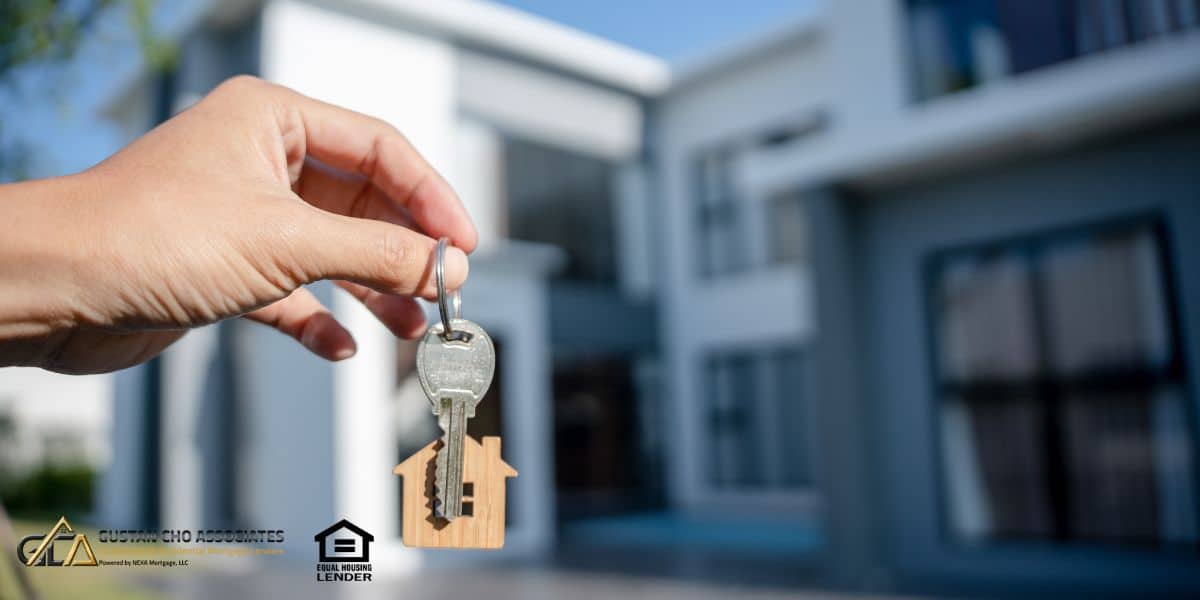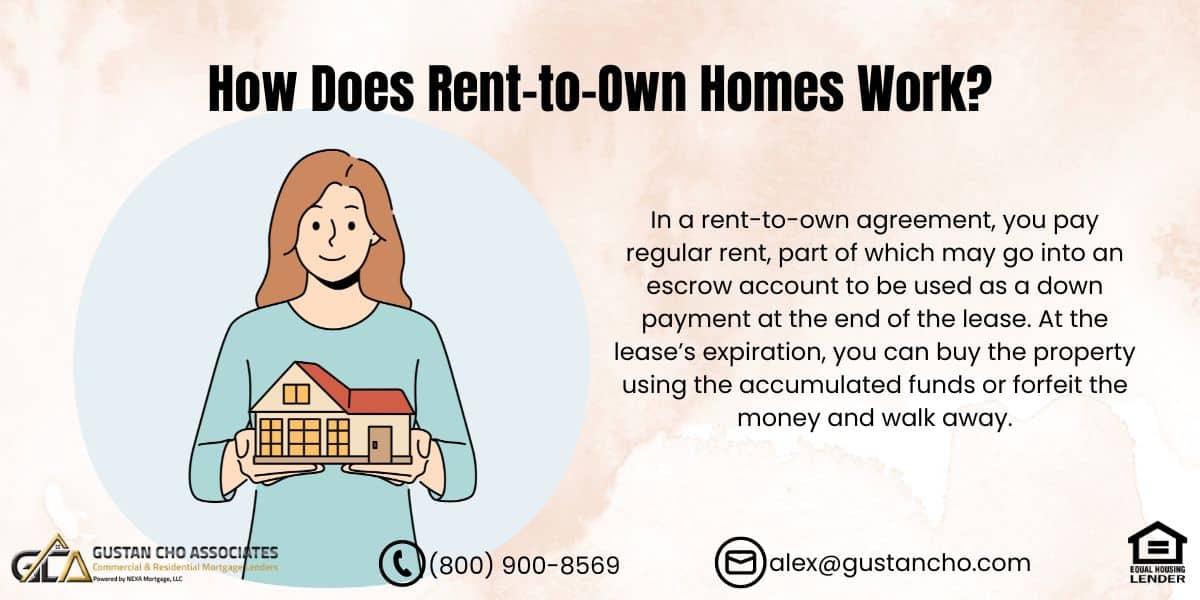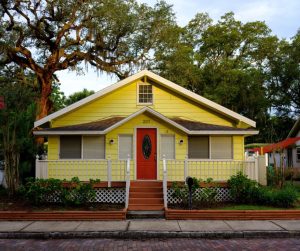In this guide, we will cover how rent-to-own homes work for homebuyers who cannot quite get traditional financing. When you want to buy a home, the usual process involves applying for a mortgage to finance the purchase. This is a whole different process, where you will have to be approved to get the funds, and your application doesn’t always go through.
Ronda Butts of Gustan Cho Associates is a rent-to-own homes realtor and expert. Ronda said the following about rent-to-own homes and the current market: Rent-to-own homes are becoming increasing popular today than ever before.
Combination of the slow housing market due to lower demand as in the past couple to skyrocketing rates and soaring inflation, lenders are more strict with lending requirements.
Many borrowers need time so they can work on their credit and qualified income. Sometimes, you may not have the required credit score, or you don’t have the amount required as a down payment, which means your loan request will be denied. If you are in such a situation, another option is available to you – a rent-to-own contract. Under this arrangement, you are not necessarily renting the property but rather leasing it for a set period of time before having the option of buying it at a later date or at the end of your lease.
What Are Rent-To-Own Homes?
What are rent-to-own homes and how does it work? In simple terms, a rent-to-own contract is an agreement between a landlord and a tenant that allows the tenant to buy the property when the lease ends. The contract details everything, from the property’s purchase price to the lease's length, plus all the crucial guidelines.
Per the rent-to-own homes agreement, the tenant/homebuyer is responsible for paying rent and any repairs and maintenance needed on the specific property.
The tenant may be required to pay a monthly portion of their rent into an escrow account. This can later be used to pay for the property at the end of the lease. Once the end of the lease approaches, a tenant can either still buy the property as initially agreed or walk away from the deal. Should they decide to purchase, the amount they have been putting into an escrow account will be used as the down payment, and if they decide not to purchase, they will have to forfeit any money in the escrow account.
What Are The Benefits of Buying Rent-To-Own Homes
The benefits of rent-to-own homes are many for both the buyer and seller. There are benefits associated with being in a rent-to-own home for the right homebuyer who cannot get traditional financing quite yet. While you are in the rent-to-own home, you can rebuild your credit so you can prepare for an end loan. This is what Marga Jurilla of Gustan Cho Associates says:
During this time, you will work on repairing your credit score and saving up for the down payment. This allows you to build property equity, which will also help you if you apply for a mortgage.
If you plan to enter into a rent-to-own agreement, you need to know and understand how it works to ensure it is the step for you. This guide will tell you exactly how the process works, plus anything else you need to know about these contracts. You can easily save money for the down payment – if you want to save up money for a down payment, renting to own is the best way. As we mentioned, there is a percentage of the monthly rent goes into the escrow account, which is later used as the down payment. This amount is mandatory, meaning that as long you live on that property, you can save no matter what.
The Benefit of Having The Option To Buy or Move into Rent-To-Own Homes
You still get the option to buy or move – once the lease ends, you will have two options; either you purchase the property or get out of the deal and move. Should you choose to go ahead with the purchase, you can get a mortgage with a qualified lender, after which you follow the standard home-buying procedure.
Without rent-to-own homes, many homebuyers have no choice but to rent. Rent-to-own homes gives homebuyers an opportunity to secure a home while they work on getting financing.
You can save on repair costs – in many of the rent-to-own contract agreements, the landlord and the tenant usually share repairing responsibilities, with the tenant taking on the minor repairs while the landlord handles the major ones. This is very beneficial, especially if you have little money to spend on extensive property repairs.
What Are The Potential Drawbacks of Rent-To-Own Homes?
No matter how good a deal all this may sound, there are some potential drawbacks that you need to be aware of. You stand to lose all your money should you decide not to buy – this is one of the biggest disadvantages of rent-to-own homes. As mentioned above, you always have two options at the end of the lease: either you buy the property, then use the money in the escrow as your down payment. Or, you don’t buy. Renter may not qualify for the loan at the end of the lease.
The benefit of rent-to-own homes is the renter is not obilgated to close on the home after the rent period has and can opt not to buy the property which then forfeits the money in escrow.
For starters, one of the reasons you enter into a rent-to-own agreement is to rebuild your credit or put your financial situation in order so that you can qualify for a loan at a later date. With that said, there is still a likelihood that after doing all that, you can still not qualify for a mortgage. It could be that the time wasn’t enough! So, if you are in such a situation, you will have to relinquish your right to the property, not to mention that the amount in the escrow may still not be returned. So, you must ensure that you time your lease period with the time you believe you will be eligible for a loan. Of course, you will need a mortgage broker or a financial expert to help you determine this.
What Are The Types of Rent-To-Own Contracts

There are several types of rent-to-own agreements, each with specific terms based on the agreement itself. But two main types are commonly known: lease-option and lease-purchase. Even though there are some similarities, there are also a few contractual differences between the two. Here is what you should know about these types of rent-to-own agreements. Rent-to-own homes are a way to buy a home through a process that starts with leasing and ends with purchasing, offering an alternative for those needing more time to be ready for a conventional mortgage. In the following paragraphs, we will cover how rent to homes typically works.
Agreement Details of Rent-to-Own Homes
The buyer and seller enter into an agreement where the buyer agrees to rent the property for a set period—usually one to three years. This contract differs from a standard lease because it includes a purchase option. The buyer pays an upfront option fee, typically a percentage of the home’s purchase price. This fee is usually non-refundable, but it secures the buyer’s exclusive right to purchase the home at the end of the lease term. In many rent-to-own agreements, a portion of the monthly rent payment is set aside as a rent premium or credit towards the home’s purchase price. These contributions can sometimes be structured to help build up a down payment.
Purchase Option of Rent-to-Own Homes
When the lease is signed, at the end of the lease term, the buyer can purchase the home at an agreed-upon price. The buyer can exercise this option, using the rent premiums and the initial option fee as partial payment towards the home. Alternatively, they can choose not to buy, typically forfeiting the premiums and option fee.
Financing Rent-to-Own Homes
If the buyer decides to purchase the home, they must secure financing through a mortgage or other means. If they cannot secure financing, they might lose the right to buy the property and any payments specifically tied to the purchase option. Responsibility for maintenance and repairs can vary by contract but often falls to the prospective buyer, which differs from typical rental agreements.
Lease-Option Rent-To-Own Homes
For starters, under this agreement, the tenant is required to pay the homeowner an option fee once they sign the contract. This would cost around 2-7% of the total purchase price. Also, the monthly amount in escrow goes toward your down payment if you decide to buy the home. Dino Hasapis, a preferred realtor partner at Gustan Cho Associates said the following: If you decide to buy the property, you can work with the seller to obtain an agreeable and fair purchase price. So, a home appraisal is required to determine the true home value, but since you paid the option fee, the purchase price is always lower. At the end of the lease, you can also choose not to buy the property, but you will have to forfeit the amount in the escrow.
Rent-To-Own Homes With Lease-Purchase Agreement
Lease-purchase agreement: This agreement works almost the same way as the lease option in that the tenant still leases the property for a few years and puts a percentage of the rent into an escrow, which will then go toward the down payment. However, under the lease-purchase agreement, the tenant must purchase the home at the end of the lease. So, before signing the agreement, the tenant and the homeowner may agree on the property’s purchase price, or they can schedule a date for the home appraisal and on the price then. The lease commences after the tenant and the homeowner comes to an agreement.
How Much Will The House Cost If I Decide To Buy It?
Setting the price way beforehand will give you an idea of the amount you will need as a mortgage so you can prepare adequately. This means that you will need to start shopping for a loan. If there are things you need to work on to qualify for a mortgage, you need to be on top of them once you reach an agreement. And if you don’t buy, you will lose all the amount you have accumulated in the escrow and lose all your rights to the property, and the homeowner can also sue you for breach of contract.
When To Choose Purchase or Not on Rent-To-Own Homes
When to choose a rent-to-own agreement and when not to. Whether or not to choose this agreement depends on the real estate market. There are times you may find that home prices are rising and choose to lock down a price for your home, enabling you to build your home equity and obtain a mortgage at the end of the lease. And other times, home prices may stagnate or even depreciate, so you may need to have a home appraisal at the end of the lease before anything else. With that said, there are times the rent-to-own contract will work and other times it may not!
When does it work?
Why Rent-To-Own Homes Benefits Homebuyers
Rent-to-own can benefit buyers who need time to build credit or save for a down payment but want to lock in a home purchase at today’s prices. However, it’s important to be cautious and thoroughly understand the terms of the agreement, as these deals can sometimes be structured in ways that are not favorable to the buyer. When you need time to improve your credit score to qualify for a mortgage, a higher credit score gives you access to more loan products, while a lower score locks you out of the loan industry. So, if you need time to work on your score, a rent-to-own agreement can be a great option.
Gives You Time To Save For Down Payment For Home Purchase
When you need time to save for a down payment, rent-to-own homes may be one avenue to explore. When applying for a mortgage, you need to have a specific amount as your down payment. Without this amount, you won’t qualify for the loan. If you need time to save up for the down payment, a rent-to-own home contract will be the best way to do so. This plan is ideal for individuals who believe they can’t save independently and may need help. With this agreement, regardless of your monthly budget, you must set aside an amount that will be put in escrow and later used toward the down payment.
When Rent-To-Own Homes Will Not Work
When you know where you want to live, and since you are not ready financially, rent-to-own homes may be the plan would be the best for you. Rent-to-own homes contract will not work if the following applies:
- You are not sure you want the loan at the end of the lease
- You don’t plan to work on your credit score
- You are often late on rent
- You are not sure about the property and the location
Rent-to-own home agreements can be a great way for potential homebuyers to make strides toward home ownership, especially if you don’t have money and can’t qualify for a mortgage. But before you commit to this agreement, you need to understand how it works, the benefits, and the risks of this approach. That way, you can plan a course of action before you even get to sign the lease. You can talk to a financial expert who will help you determine whether this contract would be ideal based on your situation. If you have any questions about the content of this guide on rent-to-own homes, please contact us at Gustan Cho Associates at 262-627-1965 or text us for a faster response. You can also email us at gcho@gustancho.com. The team at Gustan Cho Associates is available seven days a week, evenings, weekends, and holidays.
FAQ: How Does Rent-to-Own Homes Work?
1. What is a rent-to-own home? A rent-to-own home is an agreement in which you rent a property with the possibility of purchasing it at the end of the lease period. This type of contract typically specifies the purchase price, lease duration, and other important conditions. It allows you to occupy the home as a tenant while preparing financially to purchase it.
2. How does the rent-to-own process work? In a rent-to-own agreement, you pay regular rent, part of which may go into an escrow account to be used as a down payment at the end of the lease. At the lease’s expiration, you can buy the property using the accumulated funds or forfeit the money and walk away.
3.What are the benefits of a rent-to-own home? While living in the property, you have the option to secure a purchase price, establish credit, and save for a down payment. This agreement can also help you accumulate equity in the home and prepare for a standard mortgage.
4. Are there any drawbacks to rent-to-own homes? Yes, there are potential drawbacks. If you decide not to purchase the home at the end of the lease, you may lose all the money saved in the escrow account. Additionally, despite your preparations, you may still not qualify for a mortgage at the end of the lease period.
5. What are the differences between lease-option and lease-purchase agreements? Lease-option agreements allow you to buy the home at the end of the lease with no obligation to purchase. Lease-purchase agreements, however, typically require you to buy the property at the end of the lease period.
6. How much money will I need to buy the rent-to-own home? The buying price is typically established at the beginning of a lease agreement. This may involve an initial option fee and a part of the rent accumulated in escrow. The total amount required will be based on the conditions agreed upon and rent premiums paid during the lease.
7. When should I opt for a rent-to-own agreement? If you aim to lock in a home purchase at current rates but require more time to enhance your credit score or accumulate funds for a down payment, a rent-to-own agreement could be an excellent option. This type of agreement can prove particularly advantageous when housing prices are anticipated to rise.
8. What should I do if I need clarification about purchasing at the end of the lease? If you are uncertain about your ability to purchase the home or secure financing at the end of the lease, a lease-option agreement might be more suitable. It provides more flexibility and less commitment than a lease-purchase agreement.
9. What are the responsibilities for repairs in a rent-to-own home? Responsibility for maintenance and repairs can vary by contract. Typically, the tenant handles minor repairs while the landlord handles major repairs. This setup can save you money on maintenance costs during the lease.
10. Who can help me decide if a rent-to-own home is right for me? Seeking guidance from a mortgage broker or a financial expert can help evaluate your financial situation and decide whether a rent-to-own agreement suits your needs.








